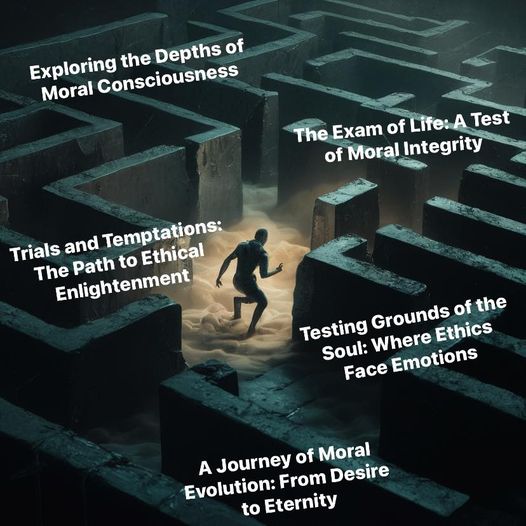
Humans are distinguished from animals by their unique potentials, ethical awareness, and moral compass, which subject them to a realm of tests and trials absent in the animal kingdom. These privileges are integral to the essence of such challenges, as without them, the very concept of testing loses its significance. While animals are spared from such trials, humans, with their complex array of desires, aspirations, emotions, and dilemmas, constantly confront these tests across various spheres of life.
As our minds remain constantly engaged, so do our emotions and desires, requiring our attention without pause. Therefore, succeeding in life’s examination necessitates unwavering commitment to moral principles and the prioritization of reason over emotion in decision-making. Achieving a balance between moral values and personal desires is paramount for success. Even if freedom from examinations were granted by the Almighty, worldly constraints would persist, governed by the principle of testing rather than absolute justice. This is because some individuals might misuse their freedom to make immoral choices or disregard rules and laws, leading to corruption and injustices.
Every outcome in life undergoes a process of testing and trial, highlighting the importance of maintaining harmony between moral convictions and personal emotions and desires. Failure to attain this equilibrium not only affects our present existence but also jeopardizes our prospects in the afterlife. Eternal life demands heightened vigilance in maintaining this balance from the Almighty perspective.
Hence, it is incumbent upon us to continuously monitor our adherence to this balance, relying on reason over emotion in decision-making. By cultivating this habit, we safeguard ourselves against immoral actions such as lying, cheating, and abusing power, thereby fulfilling the divine intent. While it is universally acknowledged that immoral acts like lying, cheating, and harming innocent individuals should be shunned, the internal conflicts we face serve a purpose: through tests and trials, we evolve into better versions of ourselves. When we err, it is within our power to choose to abstain from immoral acts such as fraud, deceit, and the misuse of power to harm others.
In summary, success lies in maintaining a balance between moral convictions and personal desires, prioritizing reason over emotion, thereby fulfilling a divine purpose of moral evolution.

